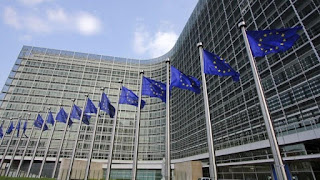A court in Madrid has sentenced Spanish rapper Pablo
Hasel to two years in prison for glorifying terrorism and insulting the
Spanish royal family. The case has sparked a debate about free speech in
Spain.
The Spanish National Court handed rapper Pablo Hasel a two year jail sentence and fined him €24,300 ($30,000) on Friday for praising terror groups, inciting violence and insulting the Spanish Crown and state institutions.
The ruling said Hasel, whose real name is Pablo Rivadulla, made the offending statements on Twitter and in a song posted to YouTube.
It's the second time in as many weeks that a Spanish court has sent a rapper to prison.
Just a few days ago, the Supreme Court upheld the conviction of a rapper called Valtonyc, who was given a three-and-a-half year jail sentence for glorifying terrorism, insulting the Spanish royals and threatening politicians in his lyrics.
Note EU-Digest: the people who argue that these sentences in Spain go against Free Speech should have their heads examined. Free Speech is not a free ticket to glorifying terror and murderers.
Read more: Spain jails another rapper for praising terror groups | News | DW | 02.03.2018
The Spanish National Court handed rapper Pablo Hasel a two year jail sentence and fined him €24,300 ($30,000) on Friday for praising terror groups, inciting violence and insulting the Spanish Crown and state institutions.
The ruling said Hasel, whose real name is Pablo Rivadulla, made the offending statements on Twitter and in a song posted to YouTube.
It's the second time in as many weeks that a Spanish court has sent a rapper to prison.
Just a few days ago, the Supreme Court upheld the conviction of a rapper called Valtonyc, who was given a three-and-a-half year jail sentence for glorifying terrorism, insulting the Spanish royals and threatening politicians in his lyrics.
Note EU-Digest: the people who argue that these sentences in Spain go against Free Speech should have their heads examined. Free Speech is not a free ticket to glorifying terror and murderers.



